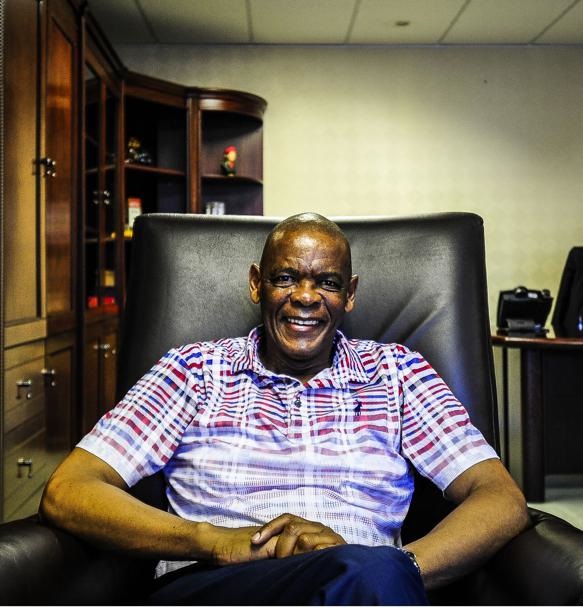
Every morning, after breaking a sweat for half an hour or so on a cardio cycle, ANC secretary-general Ace Magashule grabs a copy of Steve Biko’s book, I Write What I Like, and imbibes for a few minutes the ideas of black consciousness.
At age 59, only a year before he officially qualifies to become a member of the ANC Veterans’ League, Magashule thinks a lot about the “lack of unity” among black people in the country and how the culture of individualism and money are prolonging their struggle as a group.
“I read [the book] every day because the consciousness is no longer there. We are so assimilated by material conditions. If you read it now you can feel that we are miles away from where we want to go,” says Magashule in a fatherly tone at the tail end of the interview with City Press.
He bemoans that mainstream culture promotes the idea of “survival of the fittest”, saying it has made black people in general, and Africans in particular, stray from the common cause they used to share under white rule in the pre-democratic era.
“Now that there are resources, we are even becoming more separated. I look at myself and my children and no longer care about our poor people.
“I only care about being in Parliament and occupying office. I cannot even like my next-door neighbour in the township where I come from and buy them a pair of shoes, but I say I’m a better person today.”
That is why we need Biko again for consciousness, he quips.
Biko’s writings also reaffirm his strong view that white monopoly capital does exist, despite many of his colleagues in the ANC preferring to speak only of monopoly capital without attaching any race to it.
The reality is that there is white monopoly capital, says Magashule.
“You are a journalist. You guys have nothing. You do not own the means of production. You do not have a building. You have debt with a clothing shop, debt for a house and you drive a car that you still owe. You have nothing.”
In contrast, he says:
“That is why even you journalists need Steve Biko’s black consciousness. Be proud of being black, your dignity, and know that you are the same as any human being,” he says before offering to buy copies for everyone for our next sit-down.
But he quickly acknowledges that the ANC itself is no longer playing a leadership role in shaping the ideas of the society, comparing it to the 1980s era when “the power of discussion and persuasion was what the ANC was all about”.
“We survived in the 1980s because we were discussing and I think we have lost that type of engagement. We would sit like this and say: ‘Have you read City Press? Did you hear what they are saying?’ But these days we do not sit together and analyse the story. We just say: ‘Mxm, this guy is out of order.’”
He expects that even though the media is independent, the ANC must be able to sit down with reporters and put forward its perspective.
“Unfortunately, the ANC of today is the ANC where there are material conditions and resources. The character is changing. If you come to me and give me money I say: ‘Eish, do I take this money or what do I do?’”
Money changes people and it does not matter who you are, he says.
Aside from black consciousness and the corrupting role of money, the notion that he may be regarded as a veteran in less than 12 months also seems to haunt Magashule, and he wants “the bar raised” and the age cut-off pushed to 70 years old.
Nevertheless, he has already thought about the kind of veteran that he will be.
“A veteran is somebody who is supposed to be advising the organisation. Not a veteran who says I prefer this one and this one and not you. Veterans must talk to us and make us appreciate when we are doing wrong.”
He says, too often, he sees veterans speaking out in public and in the papers, saying the current leaders “are nonsense and divisive”.
“Rather call me and say: ‘We have been watching you and we think you are doing one, two and three.’ I would feel better and I would retreat and say maybe I have done something wrong. I’m human and if I did something wrong I would apologise.
“That is how the ANC would grow.”
 |
| ||||||||||||
| |||||||||||||




 Publications
Publications
 Partners
Partners








